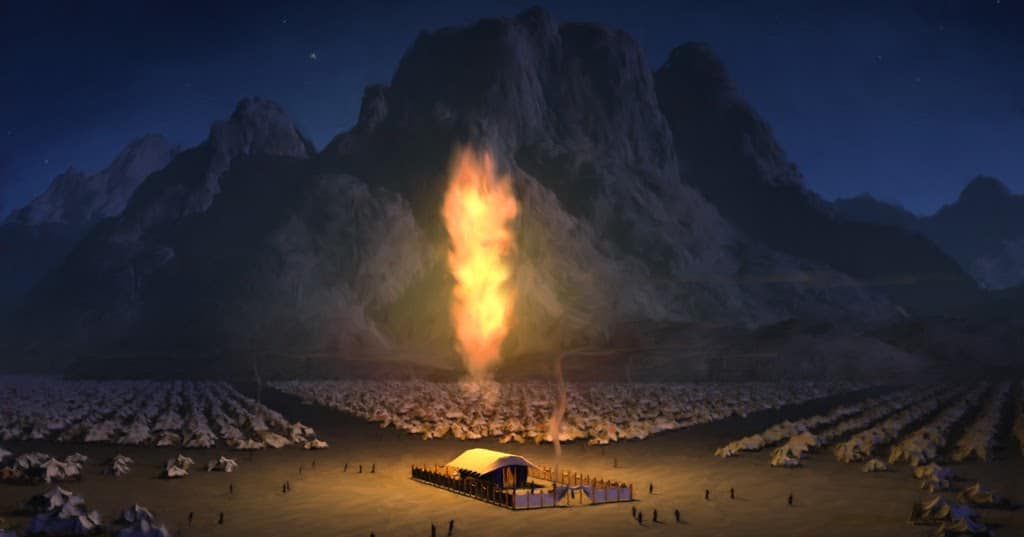Kingdom Foreshadowed Part 16

At Keys Vineyard Church, we are presenting a series called ‘Kingdom Foreshadowed,’ which we post here on Online Bible Institute.
Our series is Kingdom Foreshadowed. Last week, we examined Joshua. This week, we will explore the book of Judges.
The Book of Judges, a significant text in understanding spiritual struggles, covers Israel’s early days in the Promised Land, spanning the years between Joshua’s leadership and the reign of Israel’s kings.
Judges is probably best described as a time when “Israel had no king, and everyone did what was right in their own eyes” (Judges 17:6; 21:25).
The main lesson of Judges is a sad one: When people choose to follow their own desires instead of living for God, the result is increasing chaos, oppression, and destruction.
This downward spiral is captured in Judges Chapter 2 and is often referred to as the Sin Cycle.
Judges 2:8–19 (NIV)
8 Joshua son of Nun, the servant of the LORD, died at the age of a hundred and ten. 9 And they buried him in the land of his inheritance, at Timnath Heres in the hill country of Ephraim, north of Mount Gaash. 10 After that whole generation had been gathered to their ancestors, another generation grew up who knew neither the LORD nor what he had done for Israel. 11 Then the Israelites did evil in the eyes of the LORD and served the Baals. 12 They forsook the LORD, the God of their ancestors, who had brought them out of Egypt. They followed and worshiped various gods of the peoples around them. They aroused the LORD’s anger 13 because they forsook him and served Baal and the Ashtoreths. 14 In his anger against Israel the LORD gave them into the hands of raiders who plundered them. He sold them into the hands of their enemies all around, whom they were no longer able to resist. 15 Whenever Israel went out to fight, the hand of the LORD was against them to defeat them, just as he had sworn to them. They were in great distress. 16 Then the LORD raised up judges, who saved them out of the hands of these raiders. 17 Yet they would not listen to their judges but prostituted themselves to other gods and worshiped them. They quickly turned from their ancestors’ ways, who had obeyed the LORD’s commands. 18 Whenever the LORD raised up a judge for them, he was with the judge and saved them out of the hands of their enemies as long as the judge lived; for the LORD relented because of their groaning under those who oppressed and afflicted them. 19 But when the judge died, the people returned to ways even more corrupt than those of their ancestors, following other gods and serving and worshiping them. They refused to give up their evil practices and stubborn ways.
In Judges 2:8-19, we find a recurring pattern that highlights the Israelites’ struggle with sin after the death of Joshua. This passage introduces a “sin cycle” that unfolds throughout Judges. It starts with the people of Israel turning away from God, falling into idolatry, experiencing oppression as a consequence, crying out for deliverance, and finally being rescued by a judge whom God raises. However, once peace is restored, the people quickly return to their sinful ways, and the cycle repeats.
The key elements of this cycle—rebellion, consequences, repentance, deliverance, and rest—mirror the spiritual struggles that many of us face in our personal lives.
- Rebellion
Judges 2:10-12 describes how the Israelites “did evil in the eyes of the Lord” and turned to worship the Baals and Asherahs, forsaking the God who delivered them from Egypt. This act of rebellion often stemmed from complacency and forgetfulness. After experiencing peace and prosperity, the people forgot God’s past faithfulness and allowed their hearts to drift toward idolatry.
In our spiritual lives, we, too, are prone to rebellion when we become complacent or distracted. Like the Israelites, we may gradually replace our devotion to God with worldly pursuits or personal idols—things that we prioritize over our relationship with Him.
- Consequences
As a result of their sin, the Israelites were handed over to their enemies. In Judges 2:14, the text says, “The anger of the Lord burned against Israel, and He gave them into the hands of raiders who plundered them.” This oppression was a direct consequence of their unfaithfulness to God.
Similarly, when we drift away from God, we often experience negative consequences—spiritual emptiness, a sense of being disconnected from God and His purpose for our lives, broken relationships, and a loss of peace. Sin separates us from God, leading to spiritual defeat and turmoil.
- Repentance
In their distress, the Israelites would cry to God for deliverance (Judges 2:15). Their cries for help reflected their repentance, recognizing their need for God’s intervention.
We, too, often cry out to God when we face the consequences of our sin. True repentance involves turning away from sin and seeking God’s mercy.
- Deliverance
God, in His mercy, would raise up judges to deliver the Israelites from their oppressors (Judges 2:16). Despite their recurring unfaithfulness, God’s mercy was always ready to save them, a testament to His compassion and love for His people.
In our spiritual lives, God remains faithful in delivering us when we repent. He offers forgiveness and restoration through Jesus Christ, our ultimate Deliverer.
- Rest
Once delivered, the Israelites enjoyed a period of rest, a time of peace and prosperity under the leadership of the judge. However, this rest often led to complacency, and soon after, the cycle would begin again with rebellion.
In our lives, rest represents the peace we experience after receiving God’s forgiveness and deliverance. However, if we are not vigilant, we can fall into the same cycle of complacency and sin, forgetting that our victories come from God, not ourselves.
We will discuss all this and more this weekend at Keys Vineyard Church, so be sure to join us in person or online.
Steve Lawes is a Church Consultant and also provides coaching for pastors, churches, ministries and church planters.
